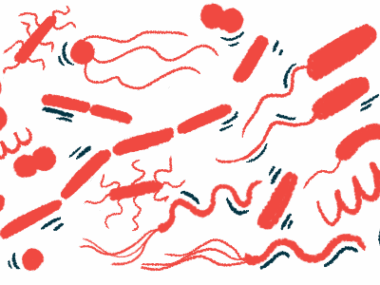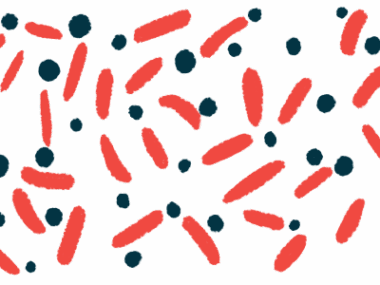Inhaled Antibiotic for Pseudomonas in CF Shows Safety in Early Trial
Spexis tested new therapy for key CF bacteria in healthy people
Written by |

A novel inhaled antibiotic that Spexis is developing to treat infections of Pseudomonas aeruginosa — the key bacterial agent of lung infections in cystic fibrosis (CF) — showed a good safety profile in a first trial conducted in healthy volunteers, the company announced.
“The first clinical data with our inhaled murepavadin hold promise as we work to bring more efficacious and safe treatments for serious lung infections to patients in need, including people with cystic fibrosis and non-CF bronchiectasis,” Juergen Froehlich, MD, chief medical officer of Spexis, said in a company press release.
“We look forward to continuing to advance this product candidate in clinical development,” Froehlich said.
Developing treatments against Pseudomonas in CF
The therapy, referred to as iMPV, contains the antibiotic murepavadin in a formulation designed to be inhaled through the mouth.
This antibiotic can specifically kill P. aeruginosa, a bacteria that infects the majority of adults with CF, by targeting the bacteria’s outer membrane. According to Spexis, iMPV has shown efficacy against P. aeruginosa strains that are resistant to many other commonly used antibiotics.
The Phase 1 trial was conducted to test the safety and pharmacological properties of iMPV in a total of 39 healthy volunteers. All participants received a single dose of the investigational therapy or a placebo. Neither the participants nor researchers knew who received iMPV and who got the placebo.
A range of doses were tested — from as low as 12.5 mg to as high as 300 mg — in the single-center study.
Safety data from the trial suggest that iMPV was well-tolerated: all participants completed inhalation of the single dose, and there were no clinically relevant signs of airway irritation or changes in lung function. Vital signs and laboratory data also were in normal ranges, and no serious side effects related to treatment were documented.
At the highest dose tested, 24 hours after the inhalation of iMPV, levels of the murepavadin antibiotic in participants’ lungs were above a concentration that would inhibit the growth of 90% of P. aeruginosa isolates in CF patients, according to Spexis. Levels in the blood peaked an hour or two after dosing, and remained below 5%.
According to Spexis, the data suggests that iMPV could deliver a therapeutically effective dose of antibiotic to the lungs — the site of chronic infection in CF — without substantially increasing its blood levels elsewhere, in contrast to previous trials of murepavadin delivered intravenously, or into the vein.
The Phase 1 trial was supported by the European Innovative Medicines Initiative (IMI).
“The strong collaboration established between Spexis and the European Innovative Medicines Initiative was an enabler for us to conduct this important first-in-human trial, and we are grateful for the IMI’s ongoing support,” Froehlich said.







